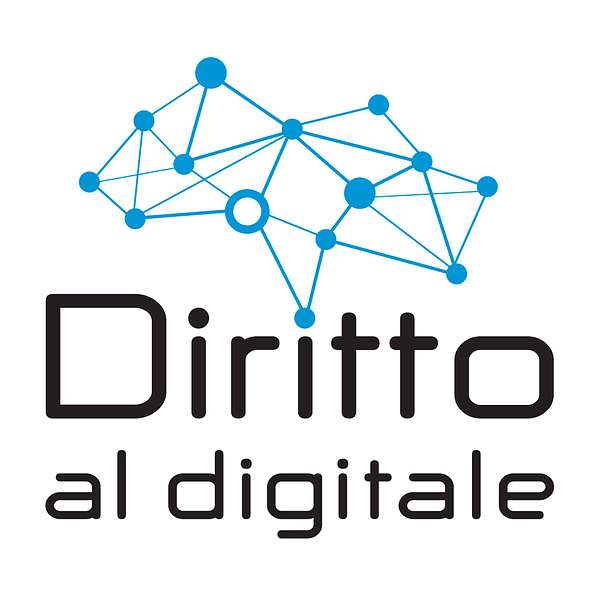
Diritto al Digitale
Diritto al Digitale is the must-listen podcast on innovation law, brought to you by Giulio Coraggio, data and technology lawyer at the global law firm DLA Piper. Each episode explores the cutting-edge legal challenges shaping our digital world—from data privacy and artificial intelligence to the Internet of Things, outsourcing, e-commerce, and intellectual property.
Join us as we illuminate the legal frameworks behind today’s breakthroughs and provide insider insights on how innovation is transforming the future of business and society.
You can contact us at the details available on dlapiper.com
Diritto al Digitale
Assessing AI Compliance - Is Your Company Doing it Right?
AI is no longer just experimental—it’s live, monitored, and regulated. As companies scale up their AI solutions, how are they assessing compliance with the EU AI Act, GDPR, and IP law? In this episode of Diritto al Digitale, Giulio Coraggio, data and tech lawyer at DLA Piper, shares a practical compliance methodology, insights from regulatory trends, and what global clients are doing now that pilot phases are over. Tune in to stay ahead.
You can read DLA Piper's AI Law Journal HERE
📌 You can find our contacts 👉 www.dlapiper.com
Artificial Intelligence is rapidly transitioning from experimental pilot projects to full-scale production systems across industries. As companies integrate AI into their core operations, the spotlight from regulators and authorities intensifies. The pressing question is: Is your AI system compliant with the evolving European legal landscape?
Welcome to Diritto al Digitale, the podcast where we explore the intersection between law and innovation. I'm Giulio Coraggio, a technology and data lawyer at the global law firm DLA Piper.
In today's episode, we'll delve into the methodologies for assessing the compliance of AI solutions in the EU, focusing on the AI Act, the General Data Protection Regulation (GDPR), and intellectual property (IP) law.
Many organizations have moved beyond the pilot phase, deploying AI systems into live environments. This transition brings increased scrutiny from regulators and necessitates a robust compliance framework. Key considerations include:
- Risk Assessment: Identifying potential legal and ethical risks associated with AI deployment.
- Regulatory Alignment: Ensuring AI systems adhere to current and forthcoming regulations.
- Continuous Monitoring: Establishing mechanisms for ongoing oversight and accountability.
To navigate the complex regulatory landscape, companies should adopt a structured approach to AI compliance. Here's a recommended methodology:
- Map AI Systems: Identify all AI systems currently in use or planned for deployment within your organization.
- Create an AI Governance Framework: Establish internal policies and procedures governing the use and approval of AI solutions.
- Form an Internal AI Committee: Assemble a cross-functional team responsible for evaluating AI solutions using a compliance-by-design approach. This team should include top managers and operational members who will assess AI solutions, liaise with business units, and monitor AI systems post-implementation.
- Select and Prioritize AI Solutions: Determine which AI solutions to invest in and establish their priority levels based on business impact and compliance risk.
- Test and Evaluate AI Solutions: Conduct thorough evaluations of selected AI technologies to ensure they meet compliance and performance standards.
- Implement Compliance Measures: Ensure adherence to privacy and IP regulations. For instance, the Italian data protection authority has initiated investigations and issued GDPR fines against providers of AI systems.
Regulatory bodies are increasingly vigilant regarding AI compliance:
- Data Protection Authorities: In Europe, authorities have initiated investigations and imposed fines for GDPR violations related to AI systems.
- Intellectual Property Concerns: Disputes have arisen over the infringement of IP rights through AI systems, particularly concerning the use of copyrighted material in training data.
- Global Regulatory Landscape: Jurisdictions worldwide are enacting AI regulations, such as the Colorado AI Act and new California AI laws, reflecting growing scrutiny.
To ensure your AI systems comply with EU regulations:
- Conduct Comprehensive Risk Assessments: Evaluate potential risks associated with AI deployment, including data privacy, ethical considerations, and legal compliance.
- Engage Legal and Compliance Experts: Collaborate with professionals who specialize in AI regulations to navigate the complex legal landscape effectively.
- Implement Robust Documentation Practices: Maintain detailed records of AI system development, data sources, decision-making processes, and compliance measures.
- Stay Informed About Regulatory Developments: Regularly update your knowledge on AI regulations and adjust your compliance strategies accordingly.
As AI becomes integral to business operations, ensuring compliance with evolving regulations is paramount. Is your organization prepared to meet these challenges?
I invite you to share your experiences, questions, or concerns. You can reach me at giulio.coraggio@dlapiper.com.
If you found this episode insightful, please subscribe to the podcast and activate notifications to stay updated on future discussions. We're available on Apple Podcasts, Spotify, and other major platforms.
Your 5-star rating would be greatly appreciated and helps us continue delivering valuable content at the intersection of law and innovation.
I am Giulio Coraggio, this is Diritto al Digitale. Arrivederci.
